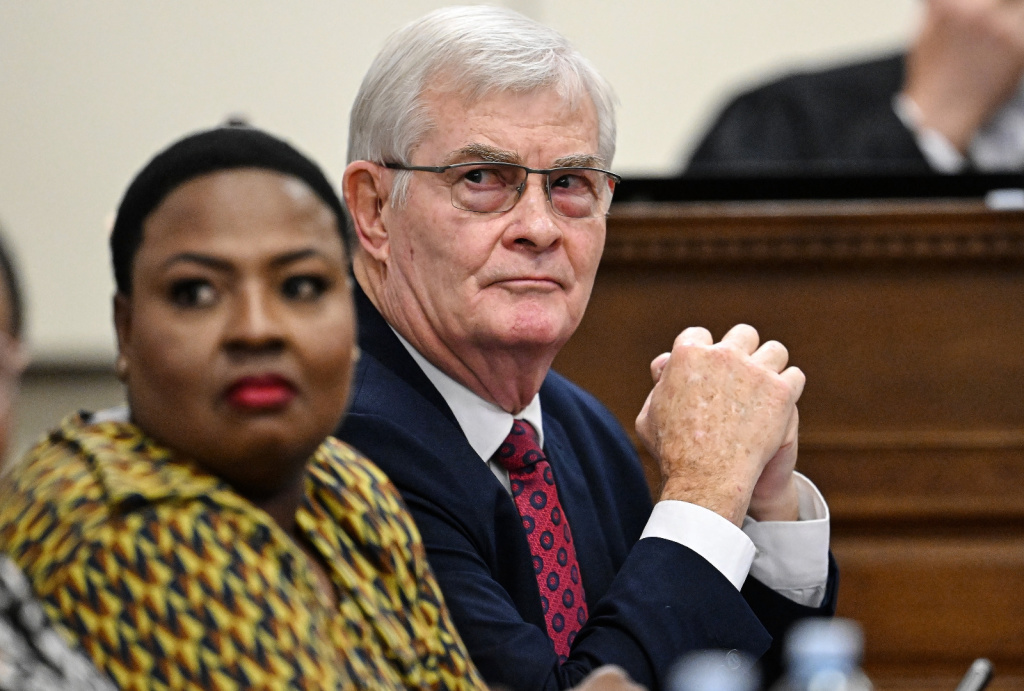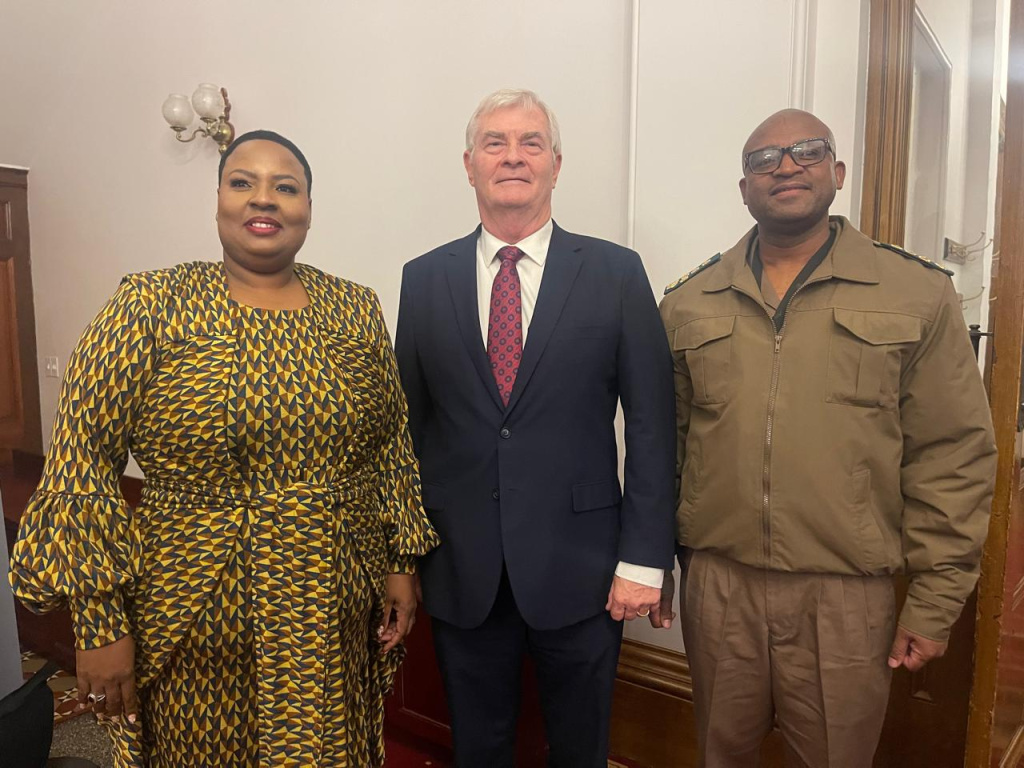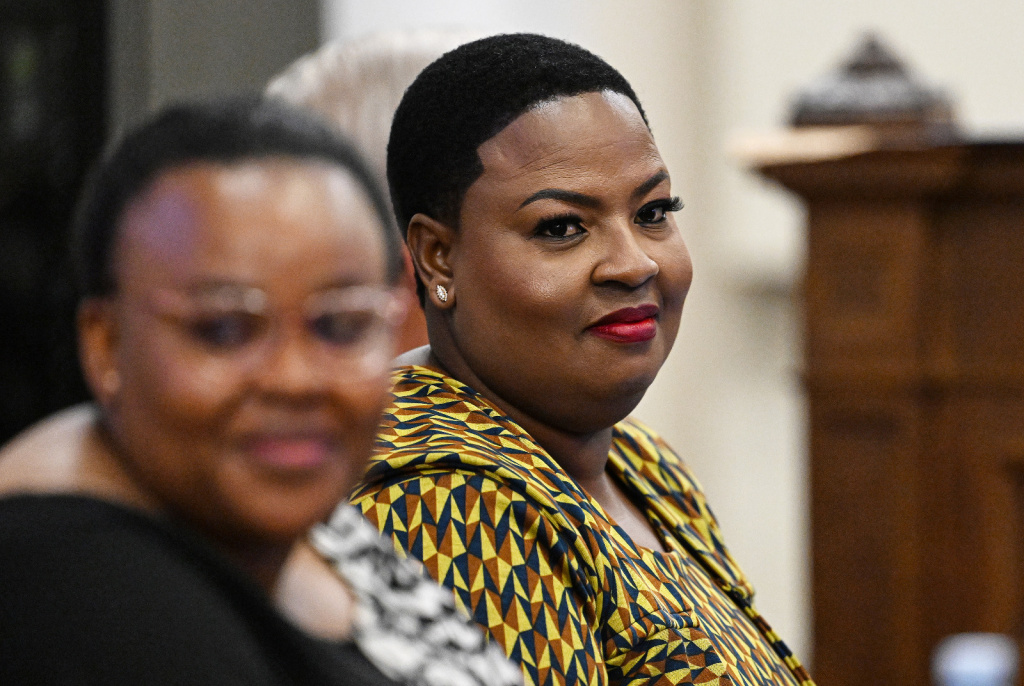
By Kabelo Selebogo
The Minister of Correctional Services, Dr Pieter Groenewald tabled the Department of Correctional Services’ budget vote for the 2024/25 financial year before Parliament on 15 July 2024 in Cape Town. Dr Groenewald highlighted department’s plans and achievements which are aimed at contributing towards building a safer South Africa, and bringing changes to the lives of ordinary citizens.
The budget is the department’s yearly plan outlining its goals and the allocation of funds to meet them. It serves the purpose of ensuring that the state has the resources necessary to carry out its mandate.
Dr Groenewald has assured that the department’s officials together with apex leaders will work as a collective to provide the general public with improved services. “I look forward to working with the Deputy Minister, the National Commissioner, his executive and each and every DCS official in ensuring quality service delivery and a safer South Africa,” said Minister Groenewald.
He stated that DCS leaders, managers and officials have been afforded the opportunity to bring about real change to the lives of ordinary South Africans. “We have been afforded the opportunity to restore and build; to fix what is broken; and to render hope for a safe, peaceful and prosperous future,” he added.
Dr Groenewald said the department’s allocation for 2024/25 financial year amounts to R87.1 billion which will be expected to increase at an average annual rate of 4.5% from R26.6 billion in the previous financial year to R30.3 billion in 2026/27.

In respect to the filling of vacancies, job creation and equipping young people with relevant skills, the Minister mentioned that the department shall be paying more attention to the type of investments made in training and developing of staff members. “A well-trained and motivated staff is essential for creating a rehabilitative environment and ridding crime from our correctional facilities. The Correctional Services Youth Programme aims to place young people in suitable positions within the Department through the normal recruitment processes, learnerships, internships as well as experiential learning,” mentioned Dr Groenewald.
He acknowledged a number of challenges encountered by the Department, including inefficiency in the departmental operations, corruption, ill-discipline, overcrowding, dilapidated infrastructure, ever-increasing population of remand detainees, staff shortages, crime syndicates and gangs operating in correctional facilities as well as new forms of crime patterns.
Dr Groenewald outlined the imperative for offenders’ rehabilitation programme, aptly known as the Strategic Framework on Self-Sufficiency and Sustainability, which empowers offenders with various skills encompassing bakery, wood works, steel workshops, textile, shoe factory, key manufacturing, agricultural production, chicken-broilers, red meat abattoirs just to mention a few.
In response to Parliament debate regarding overcrowding, Minister emphasised the urgent need to reduce overcrowding as well as the imperative for Justice, Crime Prevention and Security cluster departments to work together in order to discharge their mandate effectively. “An Overcrowding Reduction Strategy is being implemented, yet for it to succeed, requires all entities in the criminal justice system to work in unison. The Department cannot refuse to admit any person referred by the court regardless of its occupancy level,” concluded Dr Groenewald.

Deputy Minister Lindiwe Ntshalintshali addressed a number of issues covering safety, security, primary health care and the essential role of community corrections. “Effective security measures have seen the Department record a reduction in escapes, assaults and unnatural deaths. Availability and access to medicine is critical in ensuring the provision of comprehensive primary health care services to the inmate population. Correctional Services has a total of 243 correctional centres across the country, which have clinics that cater for the health needs of all inmates,” she said.
Deputy Minister Ntshalintshali added that there are 218 community corrections offices serving parolees, probationers and Awaiting Trial Persons (ATPs) for effective monitoring and supervision. She highlighted that the reintegration of offenders under the system of community corrections provides offenders with an opportunity to lead a socially responsible and crime-free life within their communities.
